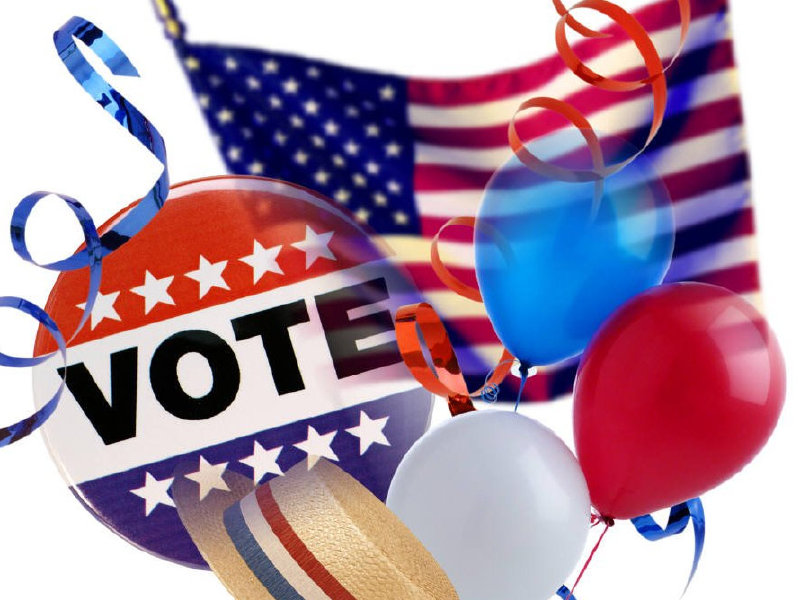{image1}Democrats with a heart and a sense of humor have to feel a little sorry for those Republicans at the state Capitol who are thrashing very publicly around TABOR, the tough-sounding spending-cap language that Assembly Speaker John Gard and others want carved into the Wisconsin Constitution.
The problem is that the normally disciplined Republicans -- including those from southeast Wisconsin -- can't agree on when, how or why to start the complex amending process.
Gard, anxious to box in (he believes) Democratic Gov. Jim Doyle, wants fast floor action. Gard, R-Peshtigo, wants to use TABOR to position himself as The Man on tax freezing when Republicans settle on a candidate to face Doyle in 2006. Doyle, meanwhile, is doing his best to keep the measure off the ballot in '06 and keep it out of the constitution.
But Republicans aren't in lockstep for TABOR -- a controversial import adopted in Colorado in 1992 -- let alone a timetable to consider it.
The squabbling, especially among legislators from rock-solid Republican districts in southeast Wisconsin and the Fox Valley, has sounded more like Democrats sniping at each other in the Iowa caucuses. Even the city of Pewaukee, a growing Republican Waukesha County stronghold, has a council, mayor and city administrator unanimously opposing TABOR.
What's going on?
Senate Majority Leader Mary Panzer, R-West Bend, thinks TABOR may have to wait until next January, upsetting any plan to get it on the 2006 statewide ballot at the same time Doyle is up for re-election. In politics, delay can mean death. Hot proposals sometimes have a very short shelf life.
State Sen. Mary Lazich, R-New Berlin, came out earlier against TABOR because she thought it might actually increase state spending. That opposition brought down the wrath of conservative talk show host Mark Belling, whose criticisms are usually aimed at Democrats. Again, what's going on?
Listen to the always-quotable Mike Ellis, state senator from Neenah and formerly the Republican leader. He says he can't figure out what TABOR actually is because there isn't a consensus on which of the many TABOR versions legislators will debate.
"Do you know what the hell it is?" Ellis asked one reporter. "I don't."
More and more, TABOR -- actually short for the "Taxpayers' Bill of Rights'' -- is looking like "Tax Ambiguity Best Opposed Responsibly.'' The probable scenarios are that TABOR would freeze state and local tax revenues using a formula not yet defined that would incorporate inflation, new growth in taxable property, or some combination.
Increases above this magic level would have to be approved in a referendum, getting elected officials further off the hook. TABOR would reduce the size of government and its provision of public services without elected leaders having to make the hard choices.
Constituents who play a role at budget time in hearings would have their role and responsibilities diminished, too. Why use something as basic as the state constitution to water down democracy?
Even a former Republican governor has strayed. Former Gov. Lee Dreyfus noted at a recent news conference in Waukesha that you need dedicated elected officials, not TABOR, to make sure spending was controlled. "Maybe all we need to do is to change the legislators," he said.
Dreyfus got it right: legislators need to legislate. They need to do their jobs by voting on the state budget and watching spending rather than meddling with the state constitution to protect themselves from themselves.
Look back just a few months to the city of Milwaukee's 2004 budget debate. Then-mayor John Norquist wanted to essentially freeze the tax levy by making cuts in library service, police and fire staffing, tree-trimming and other services.
Aldermen responded to constituent demands by keeping open a central city branch library targeted for closing. They retained the police and fire staffing. They refused to trim back tree trimming.
The aldermen did the political math. They did what representative government representatives are supposed to do: listen to the voters, think for themselves and make decisions. They did their jobs, and also increased the tax levy -- fractionally -- without the sky falling or the recall machine gearing up.
The irony, or the hypocrisy, really, is that TABOR, which is aimed at local government, is emerging in the state Legislature, where for years, members of both parties ran up billions in deficit spending like identity thieves with stolen credit cards. They bought whatever they wanted -- with other people's money.
During the Thompson-McCallum era of big spending, legislators allowed the state to buy enough automobiles to make the folks at Hertz blush.
Though they often touted the virtues of free enterprise, the Republican-led state government acquired for the state a fleet of airplanes, complete with snazzy, high-flying turboprops, a spiffy new hangar and fueling operations under the state Department of Administration.
When I called the state DOA a couple of years ago to ask some questions about the planes' cost on behalf of Norquist, for whom I worked at the time, the receptionist said, "Oh: you want the airline?"
Some of the legislators who now have tax freeze fever were also busy the last few years helping the state build multi-million dollar new state office buildings all over Madison: downtown (The Tommy G. Thompson Commerce Center and The Risser Justice Center); on the south side (The Department of Revenue headquarters); and on a wooded hill on the far east side (the Department of Ag, Trade and Consumer Protection's new digs).
Legislators also helped outfit them at the public's expense with enough computers to run a small country, parking lots, miles of phone lines and expensive office furnishings.
They went on this binge while extolling the virtues at election time of small businesses and entrepreneurs -- whose offices are often in a spare bedroom or behind a curtain at the back of the shop, wired to the Internet on a hand-me-down computer and slow dial-up service.
Having watched Milwaukee County Executive Scott Walker glory in two election wins on a no-tax-increase pledge (Walker had an advantage: he was replacing a corrupt administration), Gard and others now want to share in the limelight. And they are willing to tinker with the constitution and state traditions of tax fairness, even if it means stage-managing local decision-making from their Capitol offices.
TABOR would severely distort imbalances in southeast Wisconsin, where most of the state's poor live and where there is the greatest need for important government services.
A probable TABOR formula that restricts spending increases to the rate of inflation, or the inflation rate plus a factor for population growth, or a factor that recognizes new development, would hammer older and poorer communities, like Milwaukee, West Allis or Racine.
That is where population growth is declining or is flat and from which development has been pushed to the suburbs. It is where shared revenue is supposed to even out the playing field, but where TABOR would help the rich get richer.
A city like Wauwatosa, on Milwaukee's near western border and already far more affluent per-capita than its bigger neighbor, would fare well under TABOR. Mayfair Shopping Center, forever expanding and adding tax base, would give Wauwatosa room under TABOR for budget growth, if desired. GE Medical is coming into Wauwatosa, too, bringing with it property tax growth, and a TABOR boost.
In Milwaukee's case, growth is restricted because the boundaries of the city are frozen by a unique state law. Suburbs in the Milwaukee region that can annex land to lure growth would have a codified advantage under TABOR -- a factor that would probably render TABOR, with its across-the-board limitations, unconstitutional.
TABOR sounds good because just about everyone would like to pay less in taxes. But putting local governments into a constitutional stranglehold is bad politics and bad governing, regardless of the momentary headlines and campaign ad copy it can garner.
TABOR is one Rocky Mountain high that we don't need in Wisconsin.
Rowen is a Milwaukee writer and consultant who used to work for the Norquist administration.
 |
Sign up now for a free e-mail election service from WisPolitics.com. Click here. |







